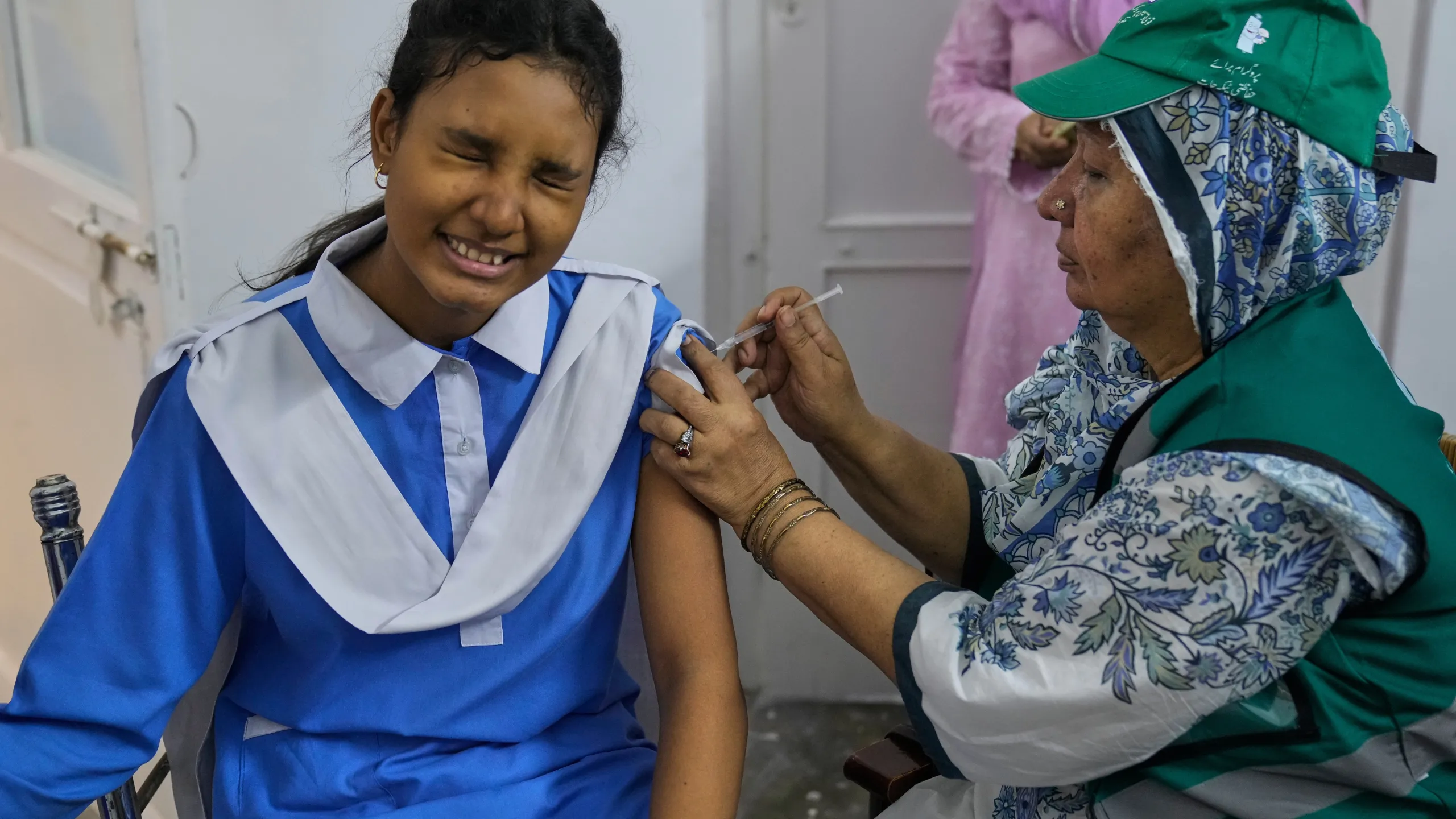
HPV Vaccine Pakistan: Drive in Pakistan Faces Over 3 Million Parental Refusals
Nationwide Campaign to Combat Cervical Cancer
Pakistan launched its first-ever national HPV vaccination campaign on September 15, 2025, targeting 13 million girls between the ages of 9 and 14 across Punjab, Sindh, Islamabad, and Azad Jammu and Kashmir (AJK). The initiative is a landmark effort to combat cervical cancer, which is the second most common cancer among women in the country.
The campaign sought to administer the HPV vaccine to protect girls before potential exposure to the virus, aligning with global health recommendations. However, within just nine days of the drive, health authorities reported 3,040,475 parental refusals, posing a major challenge to achieving the campaign’s targets.
Provincial Breakdown of Refusals
Punjab, the most populous province, recorded the highest number of refusals, with more than 2.1 million parents declining to vaccinate their daughters. Sindh followed with 659,997 refusals, while other regions, including Islamabad and AJK, reported smaller but still concerning numbers.
The high level of resistance highlights regional differences in vaccine acceptance and indicates the scale of misinformation circulating among communities. Health officials stress that these refusals could significantly reduce the campaign’s overall effectiveness in preventing future cases of cervical cancer.
Misinformation and Public Hesitancy
Experts point to misinformation and lack of awareness as the primary drivers behind vaccine hesitancy. In many communities, misconceptions about the HPV vaccine’s safety, purpose, and potential side effects have fueled parental fears. Some parents mistakenly associate the vaccine with promoting early sexual activity, while others distrust immunization programs due to previous controversies.
Medical professionals emphasize that the HPV vaccine is safe, widely used around the world, and proven to prevent infections that can lead to cervical cancer. They warn that continued reluctance could result in thousands of preventable deaths in the coming decades if the trend is not reversed.
The Urgency of Addressing Cervical Cancer
Cervical cancer remains a major health burden in Pakistan. According to health experts, it is the second leading cause of cancer-related deaths among women in the country. Each year, thousands of new cases are diagnosed, with limited access to timely screening and treatment compounding the problem.
Vaccination offers the most effective preventive measure, and the current campaign represents an opportunity to significantly reduce future cases. Public health officials argue that addressing hesitancy through education, community engagement, and awareness campaigns is critical to protecting the next generation of women.
Strategies to Improve Acceptance
In response to the high number of refusals, health authorities are expected to intensify efforts to build public trust. Strategies under consideration include engaging local community leaders, training healthcare workers to address concerns directly, and launching widespread awareness campaigns highlighting the vaccine’s safety and importance.
Officials also emphasize the need for collaboration with schools, religious institutions, and civil society organizations to dispel myths and promote accurate information. By improving outreach and transparency, authorities hope to turn the tide on vaccine hesitancy and ensure the campaign reaches its intended goals.







